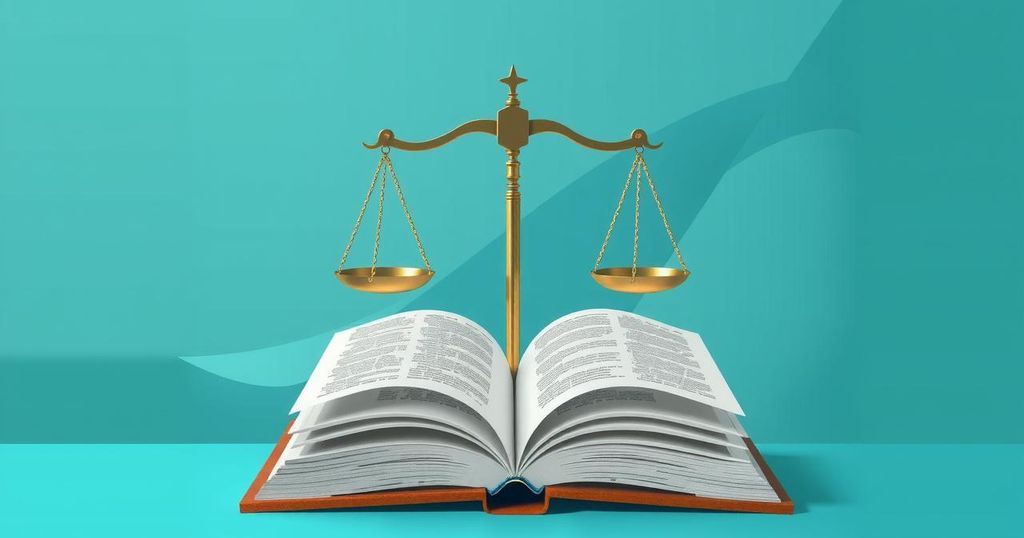Global news
ARBITRARY DETENTION, ASIA, COMMISSION OF INQUIRY, COMMISSION OF INQUIRY ON SYRIA, CUBA, EUROPE, FACT - FINDING MISSION ON IRAN, GENEVA, HO, HOSSAIN, HUMAN RIGHTS, HUMAN RIGHTS COUNCIL, HUMAN_RIGHTS, INTERNATIONAL LAW, IRAN, MAHSA AMINI, NORTH AMERICA, PINHEIRO, SHAHEEN ALI, SOUTH AMERICA, SWITZERLAND, SYRIA, UN HUMAN RIGHTS COUNCIL, VENEZUELA, WAR CRIMES
Jamal Walker
0 Comments
Human Rights Council Addresses Grave Violations in Iran, Syria, and Venezuela
The UN Human Rights Council has spotlighted human rights violations in Iran, Syria, and Venezuela, as independent experts report on severe repression and the need for accountability. In Iran, peaceful protestors face violence and systematic violations of rights. Syria seeks clarity on the fate of the disappeared. Venezuela experiences political repression, with concerns over election integrity and treatment of detainees.
During the latest session of the UN Human Rights Council, a focus was placed on the human rights records of Iran, Syria, and Venezuela. Independent experts highlighted severe violations of fundamental rights in Iran, particularly during protests triggered by the death of Mahsa Amini in 2022. Sara Hossein, the chair of the Fact-Finding Mission on Iran, reported that children suffered fatal injuries due to the use of metal pellets by authorities during peaceful demonstrations, and detainees encountered horrific treatment, including torture and rape.
Furthermore, the ongoing state repression in Iran has led to continued harassment of victims and their families, with Ms. Hossain expressing concern over the government’s refusal to recognize the demands for equality and justice from protestors. Shaheen Ali from the same mission underscored the lack of trust victims have in Iran’s judicial system for delivering justice, emphasizing the need for accountability measures beyond Iranian borders. The Iranian delegation vehemently opposed the findings of the probe.
The situation in Syria was addressed by Paulo Pinheiro, the head of the Commission of Inquiry, who called for greater efforts to uncover the fates of tens of thousands missing due to the Assad regime. He acknowledged the cooperation of new caretaker authorities but warned that the humanitarian crisis in Syria remains dire. During meetings with families of the missing, he reiterated the need for sustained efforts to clarify the fate of disappeared individuals, supported by human rights entities.
In terms of Venezuela, Marta Valiñas, chair of the Independent International Fact-Finding Mission, reported alarming human rights violations, including political repression and arbitrary detentions. She expressed concerns about the lack of electoral transparency following the disputed 2024 presidential elections, where allegations arose that election council members were given politically motivated instructions.
Before the inauguration of the new president in January 2025, there was a surge of detentions targeting opposition figures and dissenters. The mission also reported grave incidents during post-election protests, with the army using firearms against demonstrators, resulting in fatalities. Ms. Valiñas highlighted the troubling deaths of detainees in custody linked to inhumane treatment and torture, which the Venezuelan Government dismissed as politically charged allegations, asserting that the findings are based on fabricated evidence.
Ultimately, the UN Human Rights Council’s discussions illuminated pressing human rights concerns in Iran, Syria, and Venezuela, marked by calls for accountability and justice. The testimonies of independent experts underscore the grave violations occurring in these nations, necessitating continued international attention and action. The reports advocate for the recognition of victims’ rights and the urgent need for transparent processes to address these humanitarian crises.
Original Source: news.un.org




Post Comment